LONDON — Ukraine and its allies on Sunday were scrambling to respond to President Donald Trump’s apparent shift toward Vladimir Putin’s hard-line position after their summit in Alaska.
European leaders announced that they would join Ukraine’s Volodymyr Zelenskyy in Washington on Monday as they seek to navigate America’s new approach to ending the war after Trump signaled that he was reversing his insistence on a ceasefire and instead pursuing a permanent peace deal — seemingly aligning the United States with the Kremlin.
Trump on Sunday appeared to respond to reports that he may also be backing Putin’s demands for Ukraine to give up its eastern Donbas region, a further source of alarm among Kyiv and its European backers.
“If I got Russia to give up Moscow as part of the Deal, the Fake News, and their PARTNER, the Radical Left Democrats, would say I made a terrible mistake and a very bad deal,” he posted on Truth Social.
As Ukraine and Europe work out how best to move forward, a slew of leaders on the continent announced that they would be joining Zelenskyy in Washington. They will perhaps hope to ensure there is no repeat of his last Oval Office meeting, and to prevent Zelenskyy standing alone to face any pressure to accede to Putin’s demands.
The offices of NATO Secretary-General Mark Rutte, European Commission President Ursula von de Leyen, British Prime Minister Keir Starmer, Finnish President Alexander Stubb and German Chancellor Friedrich Merz said they would travel to Washington on Monday to meet with Trump. They will be joined by French President Emmanuel Macron and Italian Prime Minister Giorgia Meloni, according to Reuters.
“The trip will serve as an exchange of information” with Trump, Merz’s office said. “The talks will address, among other things, security guarantees, territorial issues, and continued support for Ukraine in its defense against Russian aggression.”
Zelenskyy thanked the European Union for its support on Sunday, standing alongside von de Leyen in Brussels, where he is set to attend a virtual meeting of the so-called “coalition of the willing,” which includes more than 30 countries working together to support Ukraine.
“Washington is with us,” he said, while reiterating that a ceasefire was needed to work on a final deal.
Secretary of State Marco Rubio told NBC News’ “Meet the Press” Sunday that a temporary ceasefire agreement is “not off the table,” despite Trump’s comments a day earlier.
Any deal would have to include “some security guarantees for Ukraine,” Rubio said.
Special U.S. envoy Steve Witkoff, meanwhile, said that Putin had agreed in Alaska to allow U.S. and European allies to offer Ukraine security guarantees resembling NATO’s collective defense mandate as part of an eventual peace deal.
“We were able to win the following concession: That the United States could offer Article 5-like protection, which is one of the real reasons why Ukraine wants to be in NATO,” Witkoff said on CNN’s “State of the Union.”
Witkoff appeared to suggest that Russia had also agreed to “legislative enshrinement” promising “not to go after any other territory when the peace deal is codified.”
Trump did appear to have taken a step toward the wishes of Ukraine and Europe on that subject in recent days.
Trump directly engaged with Zelenskyy and European leaders by phone early Saturday morning about the U.S. taking part in a potential NATO-like security guarantee for Ukraine as part of a deal with Russia, two senior administration officials and three sources familiar with the discussions told NBC News.
“European and American security guarantees were discussed,” one source familiar with the discussions said. “U.S. troops on the ground was not discussed or entertained by [Trump].”
The security guarantees would be made in the scenario that Russia were to invade Ukraine again after a would-be peace deal, the sources said. The sources said that those protections, as discussed by the White House, would not include NATO membership — despite European leaders saying in a joint statement Saturday that Ukraine should be given the right to seek NATO membership.
But it was clear that the summit had left Ukraine feeling uneasy.
For civilians on the ground, still under Russian attack even as the diplomatic maneuvering played out, it was not just the substance but the optics of the Alaska talks that caused frustration.
“I was hoping that the U.S. wouldn’t roll out the red carpet to the enemy,” Kyiv resident Natalya Lypei said Saturday. “How can you welcome a tyrant like this?”


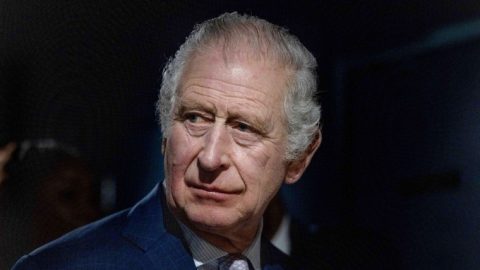
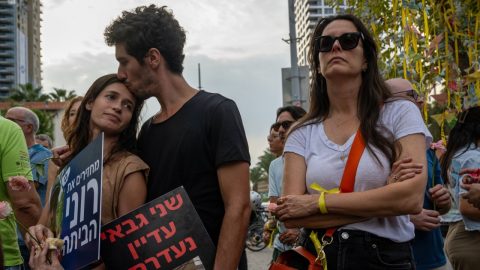
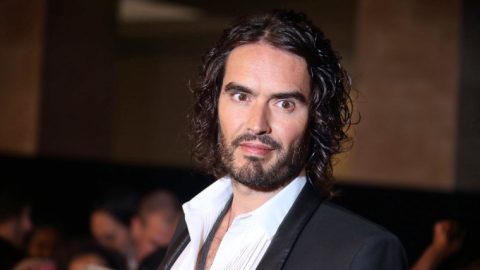
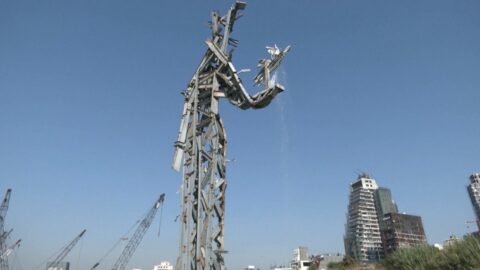
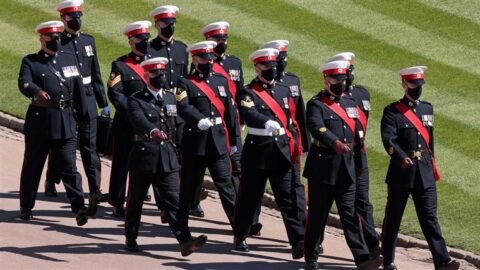


Recent Comments